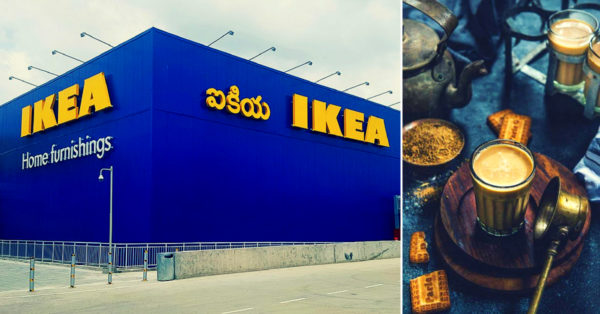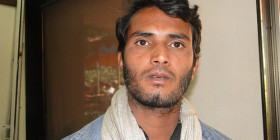Founded in 1943 by Swede Ingvar Kamprad and headquartered in the Netherlands, furniture giant IKEA makes revenue worth €38.3 billion with 411 outlets in 49 countries.
Deemed as the world’s largest furniture dealer, IKEA has finally set up its first-ever store on a 13-acre campus in HITEC city, Hyderabad.
And while the numerous conversations CEO of IKEA India Juvencio Maeztu had with Indian biggies may be credited for the 2012 plan to finally take shape, there is a backstory many aren’t aware of. It’s how the 48-year-old bossman who relocated from London to Delhi’s NCR Region found a home away from home. All over a cup of masala chai.
It was 2012. Juvencio Maeztu had only arrived in India as the CEO of IKEA India. The switch from London to the bustling city of the National Capital Region was anything but easy.
Speaking to the Economic Times, the 48-year-old recalls, “I had many concerns. I am too small, and India is too big. Could I understand India, its size, its complexity and diversity? Will my European roots constrain me?”
His mind was clouded with doubts, but he had far more important matters to attend. For instance, his morning appointment at the FRRO (Foreigners Regional Registration Office) in Delhi. And he needed a passport-size photograph.
And so, his driver drove through the lanes of NCR, before making a halt at one of the many hole-in-the-wall photography studios. The one they stopped at was run by an old gentleman.
He just had to take a photograph and be on his way. How much time could it possibly take? He couldn’t be late for his appointment.
And so, the CEO entered the shop and asked the man, “Can you take my photo?”
“Yes,” came the reply.
“How long will it take?” Maeztu asked hesitantly
“Five minutes,” the man said.
The photo was clicked. But the wait for the 5 min – ‘N’ copies of the photograph dragged on for over 15 minutes. The printer was old and dusty, takes time to warm up, the man told him.
But he was quick to offer him – “Masala chai?” he asked.
“No” came the curt reply. Even as the man struggled with the printer, he kept persuading Maeztu to drink a cup of chai. An exasperated Maeztu gave him a brusque, “No”.
It was at this time that the photographer asked, “Sir, what’s the point of life if you cannot enjoy a masala chai for five minutes?”
“Something clicked,” Maetzu told the publication. He moved to take a seat, drank the cup of masala chai. The appointment was forgotten, and the two men chatted for over an hour that day.
He may have missed his FRRO appointment, but Maetzu says, “That was the moment I connected with India. It was a turning point.”
He had finally found a home away from home.
After a long wait of six years, IKEA has now made its debut in India.
While land has been acquired in Gurugram, Bengaluru and Mumbai, the retail stores will only come up in the next few years. With a staff strength of 535 and an investment of Rs 10,500 crore, the furniture giant is here to make it big reported the publication. The current number of employees though is estimated to be around 950 people directly, about 1500 at its store in Hyderabad and aims to hire another 15,000 employees as it expands its operations.
“We are here for the long term. We think of 100 years when we think of our strategy. I have taken no shortcuts. More importantly, I have had no pressure (from the headquarters) to take shortcuts. In the next 100 years, the sheer size of India makes it important. There are other super big reasons. India is challenging us to find better ways to do business. This is a market you need to learn and not come into with an attitude that you know everything,” he said.
The vision is to also have over 25 stores and 20,000 employees in India by 2030.
The report adds how India is the first market where IKEA is rolling out a multi-channel retail online and offline strategy from day one. It is also planning to explore the use of eco-friendly raw materials like bamboo, coconut waste, water hyacinth and recycled PET.
Apart from working with over 80,000 farmers to boost cotton production, it is also helping skill 1,200 women artisans with the UNDP under its programme ‘Disha’ and boost employment from underprivileged communities.
Seems like a journey that began with one cup of masala chai came a long way after all!






Leave a reply